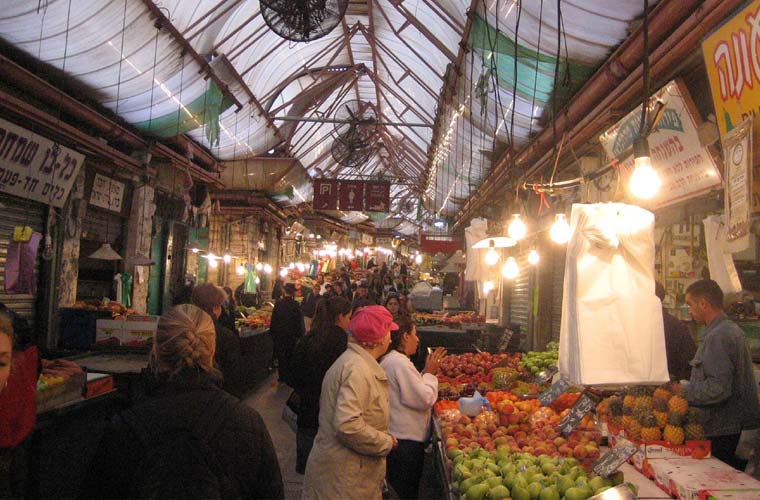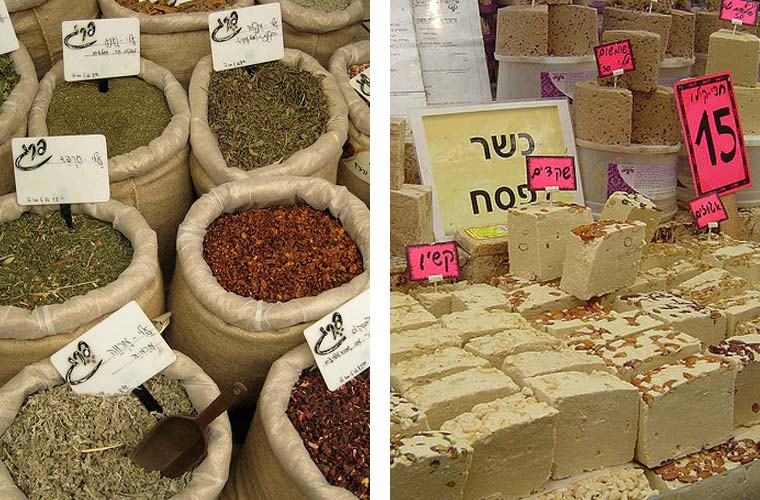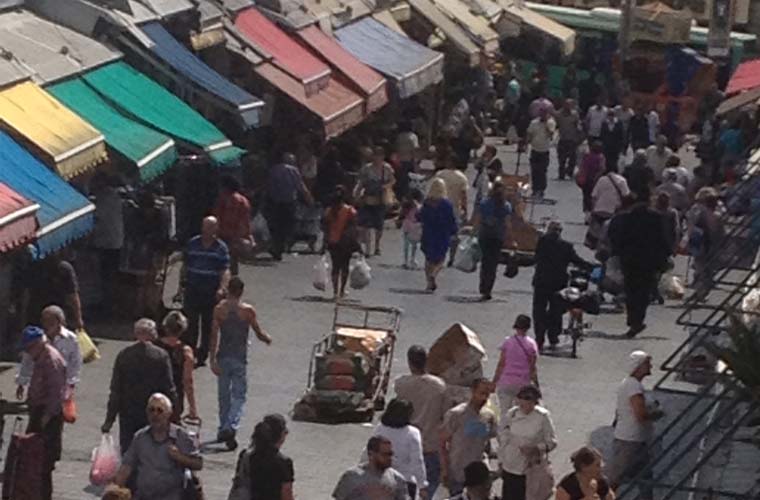Machane Yehuda
Joel Haber 14/03/2015
No trip to Jerusalem is complete without a visit to the outdoor Machane Yehuda market. I’m sure you’ve heard a similar claim about many other sites, but Machane Yehuda is so closely tied to the culture and mythology of the city – even the soul of the city – that a statement like this is no exaggeration.

While there are many other markets and shopping areas spread throughout the city, Machane Yehuda is the most famous and popular, due to its authentic, old world charm, delicious fresh produce selection and newer multicultural culinary boutiques.
The market is most commonly referred to by locals simply as “the shuk,” but it is not to be confused with the many other shuks (outdoor markets) in the Muslim and Christian quarters of the Old City. While those offer many of their own charms, Machane Yehuda stands alone in its universal appeal. Some think of Machane Yehuda as the “Jewish shuk” and the others as Arab markets, but this is not really accurate. While Machane Yehuda is situated in the predominantly Jewish area of western Jerusalem, Arab and Jewish merchants side by side scream in unison how sweet their strawberries are or how low their prices.
Those who shop in the market are even more diverse. Elderly and young; Jew and Arab; ultra-Orthodox Jew, secular Jew and everything in between; foreign workers, tourists and students – all meander together through Machane Yehuda’s matrix of shop-lined alleys.
Check out our hotels close to the Market
How to experience the market?
Tourists who visit Machane Yehuda have a few options on how to experience the market. Some enjoy just wandering around, absorbing the atmosphere, taking pictures of the colorful produce and smelling the wealth of aromas. For those who want to explore the shuk on their own with a bit more depth, I have published an up-to-date map of every basta (stand) in Machane Yehuda.
Another option is to take a culinary tour in the market. Many guides (myself included) offer such tours, and on them you can gain a mix of the history and culture of the shuk, as well as learn about the various ethnic foods offered in Machane Yehuda’s many shops.
Many have debated whether there is a distinctive Jerusalemite cuisine. In my opinion, one of the things that makes our food special is the specific blend of tastes and origins. We are more of a melting pot city than even New York. In NYC, you can probably find at least one restaurant from every cuisine known to man. But they are spread out. If you want good Haitian food, you have to go to Flatbush. Senegalese food is best in West Harlem, while everyone knows that Astoria is the home of Greek cuisine.
But New York City holds a population of about the same size as the whole of Israel! In the much smaller Jerusalem, all our cultural groups live side by side. Inside of a 5-minute walk around Machane Yehuda market, you can find Central Asian foods from Georgia and Kurdistan, European offerings from England and France, Middle Eastern foods from Lebanon, Syria and the Arabian Peninsula, and North African dishes hailing from Morocco, Tunisia and Libya.
It is because of this mixing of cultures, that flavors of the cuisines have blended as well. Jerusalem Kugel, for example, is a unique dish that inserts the seasonings of Sephardic Jewry into a noodle pudding with Ashkenazic Jewish origins. Until recent decades, it was only here that you had Jews from all over the world meeting and marrying each other, leading to a blending of their food offerings.
Finally, tourists should think carefully about when to visit the shuk. Many past visitors will encourage first-timers to go on Friday afternoon. It is then that many Jews are out doing their pre-Shabbat shopping, and there is an intense energy of hustle and bustle. I, on the other hand, will recommend against a visit then. If you really want to experience all the shuk has to offer, the crush of the Friday throngs prevents you from doing so. A midweek visit much better allows you to explore the sights, sounds, smells and tastes that Machane Yehuda has to offer.
Alternatively, a nighttime visit opens an entirely different world. With our current mayor, Nir Barkat’s focus on youth culture, a number of new pubs have opened their doors in the market. Their tables spill out onto the alleys of the shuk itself, in front of the shuttered produce and fish stands, closed for the night. Many bars bring DJs or small live bands, and young revelers dance amid the sweet hookah smoke wafting through the streets.
Recommended hours to visit the market
This new nightlife in the market has led the restaurants to also keep their doors open later. What was once vacant at night, just seven or eight years ago, is now a hopping spot full of unique energy and life after dark.


